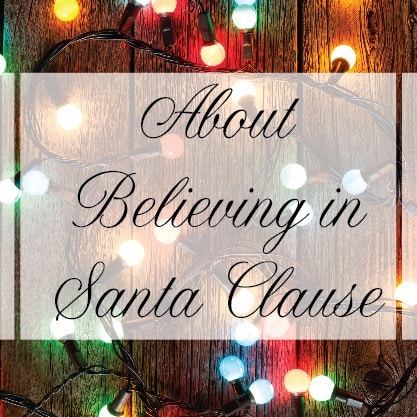Two back-to-back items that occurred a number of years ago, when I was serving as senior pastor of The Church On The Way, speak to this delightfully controversial topic.
The first was when I was interviewed by the Los Angeles Times about our church’s approach to celebrating Christmas joyously as a congregation. The second was when I was informed by one of our congregation (they laughed, telling about it) that one of my granddaughters had told their daughter that there isn’t a Santa Claus. The mood, spirit, and intent of both events and commentary heartened me.
First, even though I knew the news article would probably expose me (us) to the misunderstanding or criticism of people who want to misunderstand and criticize, I was heartened knowing that many will “take heart” over the possibility that a Christian can be both holy and happy—faithful to Christ, and free to celebrate without compromising some of the enjoyable traditions of our culture. Enjoying “Santa Claus” is an example.
Even though a small percentage of the Christian community takes issue with Santa, I find it hard to be threatened by him. I also find it impossible to believe either God, the Father or Christ, the Son, is likely to be eclipsed by the silhouette of Santa’s sleigh rising in the Christmas sky. The reason is that beyond all crass commercializing and pagan violations of the true spirit of Christmas, when understood historically and interpreted fairly, Santa is a great symbol of a holy spirit the Father wants to rain over the world at Christmas and always. Despite his image being smeared by those who commandeer and apply his name and face to any less-than-worthy pursuits and perversions of true Christmas-ing, Santa will survive unscathed if honestly assessed on the grounds of his true derivation.
One year, my mother, who has since gone home to be with the Lord, bought me a simple-but-beautifully carved sign that reads, “We believe in Santa Claus.” Anna and I hung it for all who visit our home at Christmas to see. You have to know that in displaying this statement, I knew full well there was a risk. But while I haven’t received anything but expressions of delight from happy souls who understand what is true and what I do mean, it seems inevitable that someone won’t understand and won’t like it. Thus, perhaps it’s wise that I share why and what I believe in and about Santa Claus.
I believe Santa Claus was a real person, and one who testified to and demonstrated the love of God poured out to us in the Person of His Son and our Lord, Jesus Christ. A study of Nicholas of Myra (or Bari), who was a “saint” by reason of his faith in Christ, and was titled “Saint Nicholas” by reason of the traditional Church’s recognition of his love and good works, reveals a true believer and a genuine servant to mankind. All myth and legend evolving from this man, which is flavored with good and godly ideas of loving, giving, caring, and helping, is well-grounded in facts; facts that I believe in.
I believe in Santa Claus as a righteous mood, attitude, or disposition. I believe in whatever generosity of spirit he symbolizes to us, and I like the idea that the contemporary role of Santa has traditionally incorporated a call to personal accountability for good or bad deeds done or undone. To “believe” in this way is not an endorsement of money-grubbing commercialism, or indecent parties where an employee dressed as Santa leads in the misappropriation of the spirit of Christmastime celebration. Whatever is done with Santa’s reputation by the ignorant ought not weaken our remembrance, acceptance and celebration of what he truly represents.
I believe in Santa Claus, because when rightly adopted into a family’s Christmas traditions, he enhances children’s fun without threatening their faith. There is an acceptable way to include him in the family and not diminish either ultimate truthfulness or imagination’s fun times. Where adults who know the Savior truly live like it, no child they influence is likely to confuse the Santa we pretend about with the Living Christ we worship, serve and in Whom we place our eternal faith.
This was confirmed by my granddaughter. She was raised in an atmosphere that neither avoided Santa nor made a religion of him, and by parents whose folks played Santa and didn’t seem to demolish any sort of healthy respect for the ultimate, the real or the holy.
Yes, I do believe in Santa Claus, but I haven’t been trapped into paganism or even slightly lost focus on Jesus—the Babe-become-King and the Center of the Season. I have a suspicion that if Jesus were asked how He felt about Santa Claus and if Santa was a threat to the intent of His holy Kingdom, He might say either: “Wherever a heart of love inspires further loving and giving, the Father of Christmas is being experienced.” Or, surprised by our being concerned at all, He might say with a measure of puzzlement over our debate, “Santa who?”




